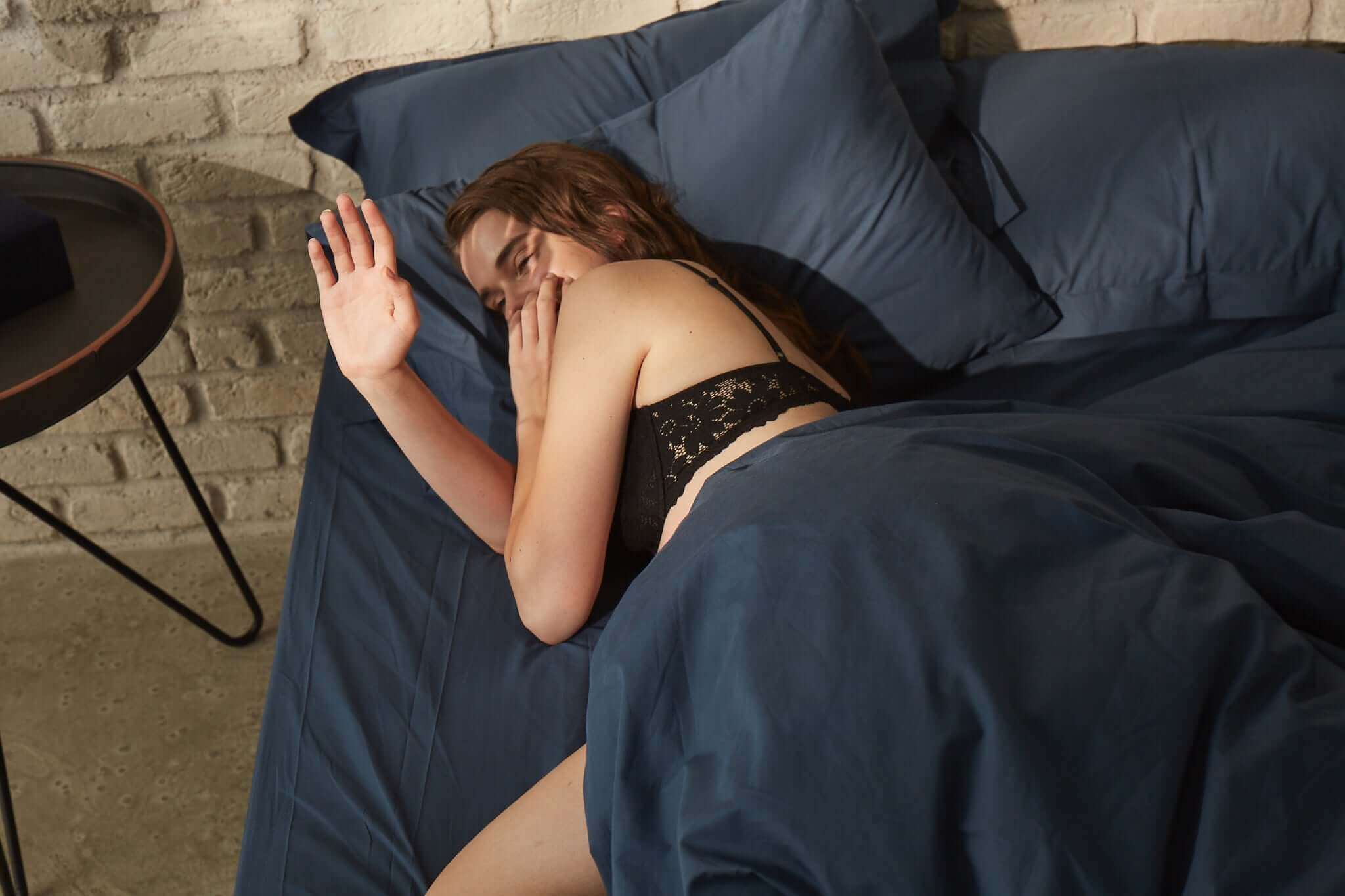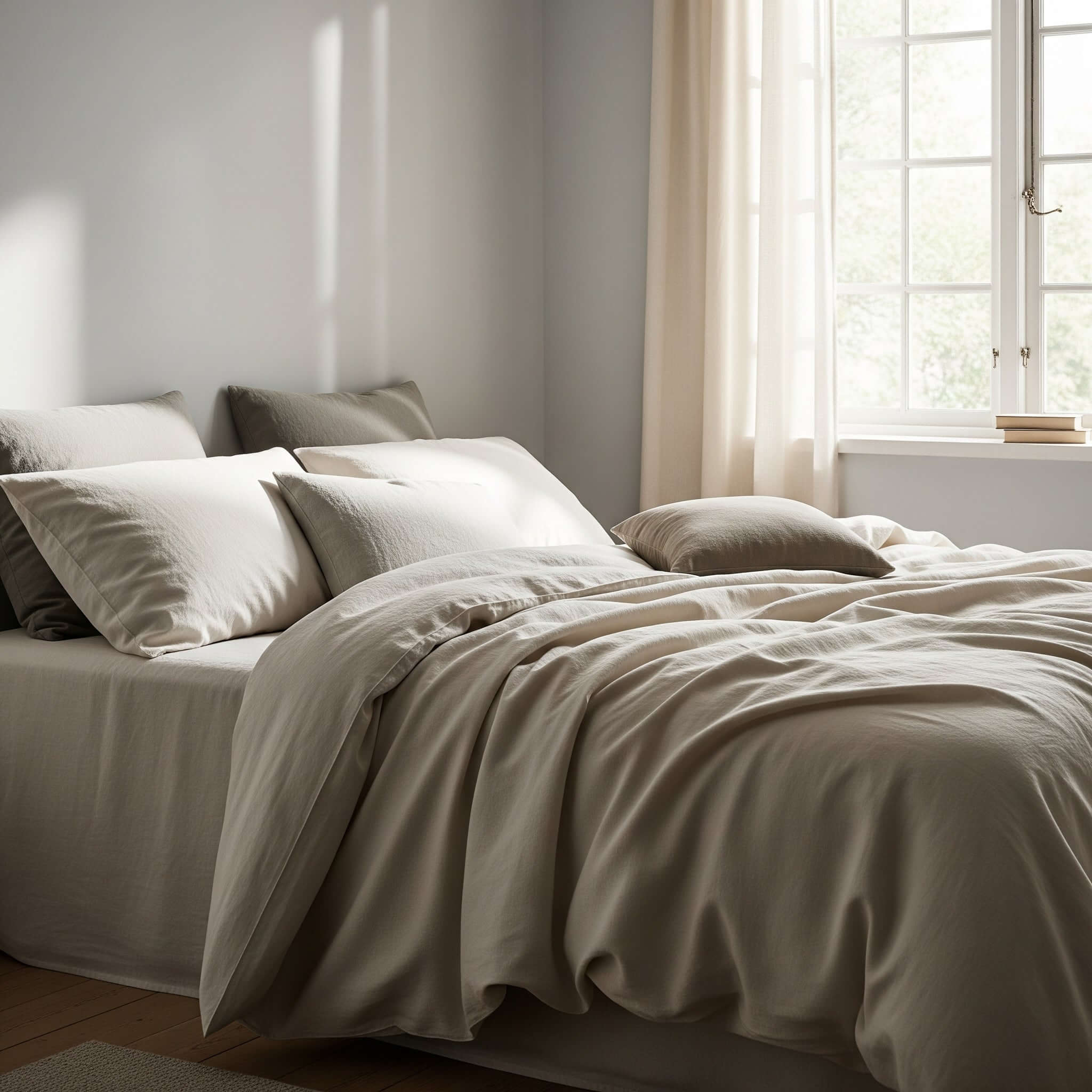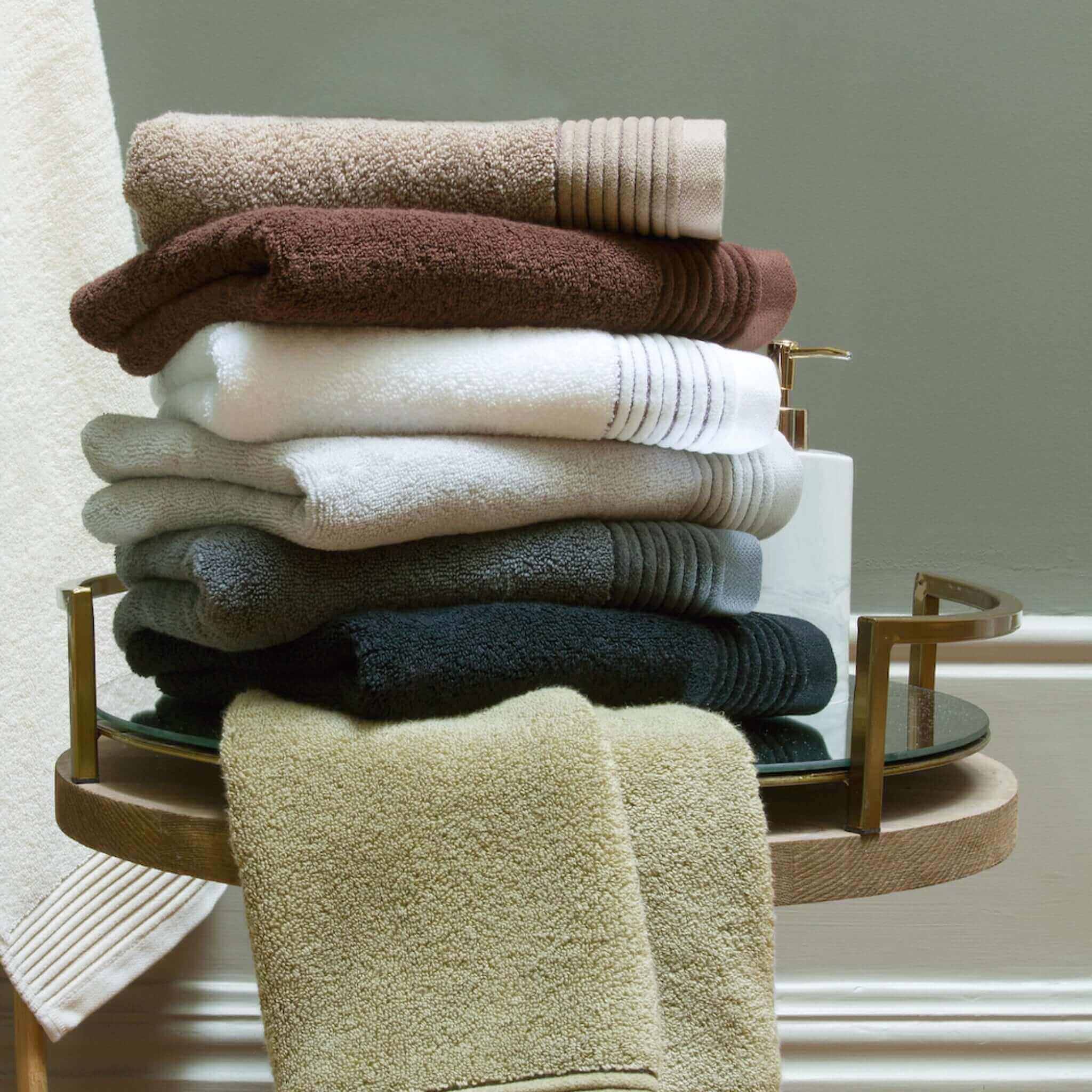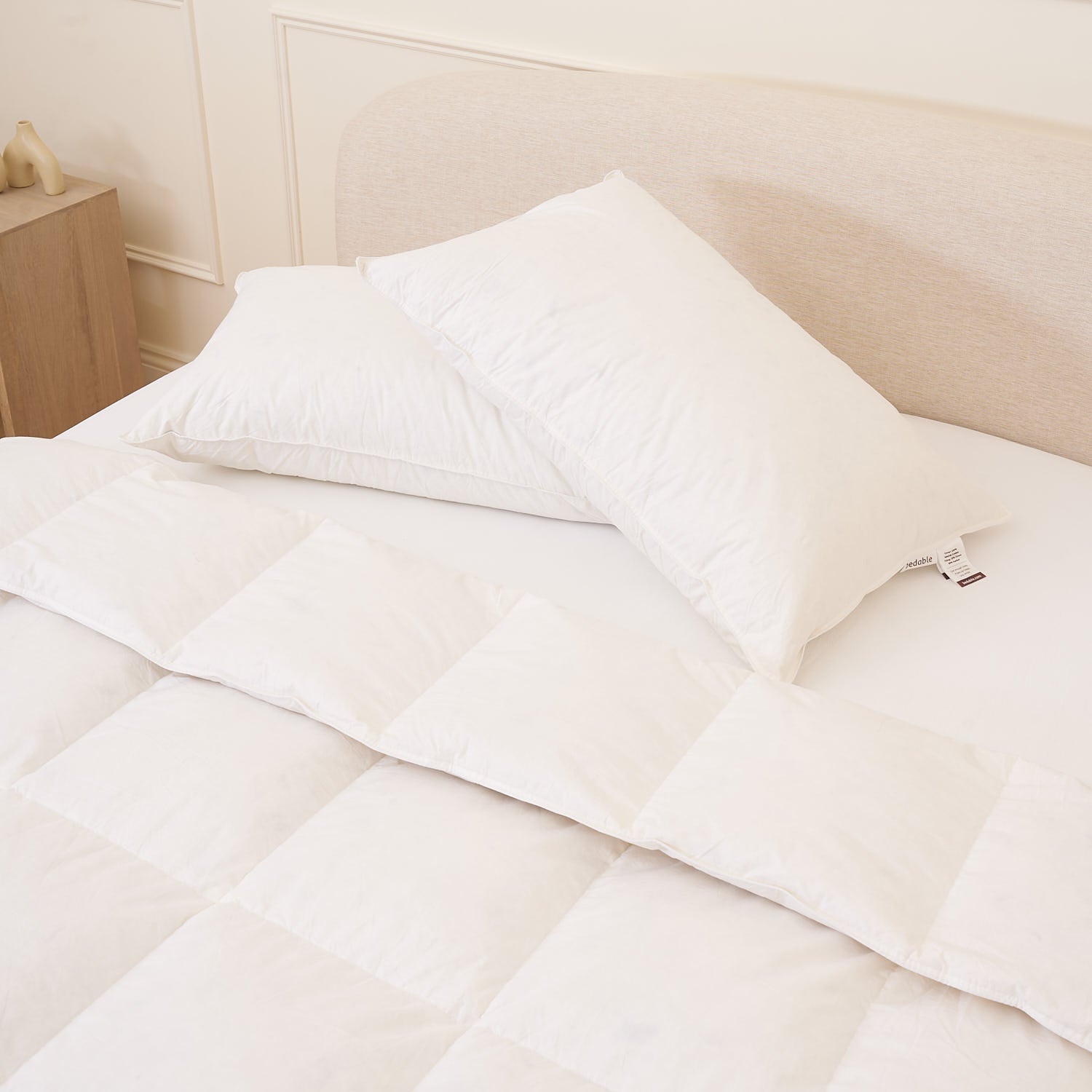You might not realise it, but World Sleep Day is observed annually on the Friday before the March Equinox. If you are wondering what this is, it is a day that recognises the importance of a good night’s sleep for everyone in the world. Taking place before the March vernal spring equinox, World Sleep Day is also an occasion to review our night-time routines and consider making some amendments.
The Impact of Light
Light is hugely impactful on the body. Through the connections made through the eyes and the brain’s biological timeframe, lighting influences the chemistry and behaviour and keeps us functioning with the pattern of our day.
Consider this: humans have evolved from being outside, where they have been exposed to light beginning with the rising sun. In the modern world, we spend lots more time inside, but sunlight still aids us in regulating our sleep patterns.
When you wake up in the morning, exposure to natural daylight alerts the brain and gets you up and running. Then, when it’s time to unwind, factors such as having blinds in the bedroom, being comfortable, having quality bedding, or even wearing an eye mask can help you immerse yourself in complete darkness. As you awake, pull your blinds and eye mask back to bathe the room in glorious sunlight and let the cycle start again. Before you begin the day, spend some time in the light, and try to remember to give your body doses of sun throughout the day where you can.
If you need to wake before the sun comes up, you can find dawn-simulating lights or possibly use lighting to assist with seasonal affective disorder. These are very helpful through the winter when the sun comes up later in the day.

Luxury Bedding Sets
Upgrade your sleep
with deliciously soft bedding sets
crafted from premium cotton.
The Sleep Environment
The bedroom environment can have a huge impact on your sleep quality and quantity. There are a few key variables that come together to make up the sleep environment, including light, noise, and temperature. Having attuned factors during your sleeping time in this environment will put you at ease and eliminate those that could cause stress or distraction, so you can prepare yourself for a good night’s sleep.
We’ve already touched on how light impacts your internal sleep patterns, and that too much light at night can shift our internal clock and make restful sleep difficult to achieve. To decrease this impact, nightlights in the home and bedroom can be utilised. As for noise levels, background noise may relax certain people, but generally, the volume level should be low. Otherwise, increased frequency of awakenings could prevent transitions to the deeper levels of sleep. Research indicates that the optimum temperature range for sleeping varies significantly from individual, so much so that there is no specific ideal temperature to produce optimal sleeping patterns; it’s highly subjective. People simply sleep best at the temperature that works for them!
Here at Bedable, for bedding that is designed for style and comfort, opt for Bedable. Our range of bedding has been created from premium cotton to make sure you get a good night’s sleep every night. To find out more, see our luxury bedding sets.
The Optimum Room Temperature for Quality Sleep
Sleep is an essential component of our overall health and well-being, yet many individuals struggle to achieve the restful slumber they desire. One of the most significant factors influencing sleep quality is the temperature of the sleeping environment. Understanding the ideal room temperature for sleep can help you create a more conducive atmosphere for rest, leading to improved sleep quality and overall health.
The Science of Sleep and Temperature
The relationship between sleep and temperature is deeply rooted in our biology. Our bodies follow a natural circadian rhythm, which regulates various physiological processes, including body temperature. As night approaches, our core body temperature begins to drop, signalling that it is time to sleep. This cooling process is crucial for initiating sleep and maintaining it throughout the night.
Circadian Rhythms and Body Temperature
Circadian rhythms are 24-hour cycles that influence many bodily functions, including sleep-wake cycles and temperature regulation. Typically, body temperature decreases by about 1 to 2 degrees Fahrenheit (approximately 0.5 to 1 degree Celsius) during the night. This drop in temperature is essential for facilitating the onset of sleep and ensuring that we progress through the various sleep stages effectively.
The Role of Melatonin
Melatonin, a hormone produced by the pineal gland, plays a vital role in regulating sleep. As the body cools down, melatonin levels rise, promoting feelings of sleepiness. This hormonal shift is crucial for transitioning into sleep and maintaining a restful state throughout the night. Disruptions to this temperature cycle can lead to insomnia and other sleep disorders.
Ideal Temperature Range for Sleep
While individual preferences may vary, research suggests that the optimal room temperature for sleep generally falls between 16 to 20 degrees Celsius (60 to 68 degrees Fahrenheit). This range is conducive to promoting deep, restorative sleep and minimising disturbances throughout the night.
Why 16 to 20 Degrees Celsius?
-
Facilitates Sleep Onset: A cooler environment helps signal to the body that it is time to sleep, making it easier to fall asleep quickly.
-
Enhances Sleep Quality: Maintaining a temperature within this range supports the body's natural cooling process, allowing for uninterrupted sleep cycles.
-
Promotes REM Sleep: Cooler temperatures are associated with increased time spent in rapid eye movement (REM) sleep, which is essential for cognitive function and emotional regulation.
Individual Variability
It is important to note that individual preferences for sleep temperature can vary significantly. Factors such as age, gender, and personal comfort levels can influence what feels best for each person. For instance, younger individuals may prefer slightly cooler temperatures, while older adults might find comfort in slightly warmer conditions.
The Impact of Excessive Heat on Sleep
Sleeping in an environment that is too warm can have detrimental effects on sleep quality. High temperatures can lead to increased wakefulness, reduced REM sleep, and a greater likelihood of experiencing sleep disturbances.
How Heat Disrupts Sleep
-
Increased Restlessness: When the bedroom is too warm, individuals may find it difficult to fall asleep and stay asleep, leading to frequent awakenings.
-
Reduced REM Sleep: Elevated temperatures can interfere with the body's ability to enter REM sleep, which is crucial for memory consolidation and emotional processing.
-
Discomfort and Sweating: Excessive heat can cause discomfort and sweating, making it challenging to achieve a restful state.
Signs of Overheating
If you frequently wake up feeling hot or sweaty, it may be a sign that your sleeping environment is too warm. Other indicators include difficulty falling asleep, frequent awakenings, and feeling restless throughout the night.
The Consequences of Sleeping in a Cold Room
While excessive heat can disrupt sleep, sleeping in an environment that is too cold can also have negative effects. Cold temperatures can lead to discomfort and may hinder the body's ability to relax fully.
How Cold Affects Sleep
-
Increased Wakefulness: If the room is too cold, individuals may find themselves waking up more frequently due to discomfort.
-
Shallow Sleep: Cold temperatures can lead to lighter stages of sleep, preventing individuals from reaching the deeper, restorative stages necessary for optimal rest.
-
Physical Discomfort: Being too cold can cause muscle tension and discomfort, making it difficult to relax and fall asleep.
Finding the Right Balance
To achieve the best sleep quality, it is essential to find a balance between too hot and too cold. Experimenting with different temperatures within the recommended range can help you identify what feels most comfortable for your unique needs.
Tips for Maintaining the Ideal Sleep Temperature
Creating the perfect sleep environment involves more than just adjusting the thermostat. Here are some practical tips to help you maintain an optimal sleeping temperature:
1. Use Breathable Bedding
Opt for lightweight, breathable bedding materials that allow for proper airflow. Natural fibres such as cotton or linen can help regulate body temperature and wick away moisture.
2. Adjust Your Sleepwear
Choose sleepwear that is appropriate for the season and allows for breathability. Avoid heavy fabrics that can trap heat and cause discomfort.
3. Consider a Cooling Mattress
If you find that your mattress retains heat, consider investing in a cooling mattress or mattress topper designed to dissipate heat and promote airflow.
4. Use Fans or Air Conditioning
Utilising fans or air conditioning can help regulate room temperature and improve airflow. A ceiling fan can create a gentle breeze, while air conditioning can maintain a consistent temperature.
5. Keep Windows Open
If weather permits, consider opening windows to allow for fresh air circulation. This can help cool down the room and create a more comfortable sleeping environment.
The Importance of Sleep Hygiene
In addition to temperature, maintaining good sleep hygiene is crucial for achieving quality rest. Sleep hygiene refers to the practices and habits that promote consistent, uninterrupted sleep.
Establishing a Sleep Routine
Creating a consistent sleep schedule can help regulate your body's internal clock. Aim to go to bed and wake up at the same time each day, even on weekends.
Limit Screen Time Before Bed
Exposure to screens before bedtime can interfere with melatonin production and disrupt sleep. Aim to limit screen time at least an hour before bed.
Create a Relaxing Environment
Designate your bedroom as a calming space free from distractions. Consider incorporating soothing elements such as dim lighting, calming scents, and comfortable furnishings.
The Role of Age and Gender in Sleep Temperature Preferences
Age and gender can significantly influence sleep temperature preferences and needs. Understanding these differences can help tailor your sleep environment for optimal rest.
Age-Related Changes
As individuals age, their bodies may become less efficient at regulating temperature. Older adults may prefer slightly warmer conditions to maintain comfort during sleep.
Gender Differences
Research suggests that women may have different temperature preferences compared to men, particularly during hormonal fluctuations such as menopause. Women may require cooler environments to alleviate symptoms such as night sweats.
Conclusion
Achieving quality sleep is essential for overall health and well-being, and temperature plays a crucial role in this process. By understanding the ideal room temperature for sleep and implementing strategies to maintain a comfortable environment, you can enhance your sleep quality and wake up feeling refreshed and rejuvenated. Remember that individual preferences may vary, so take the time to experiment with different temperatures and practices to find what works best for you. Prioritising your sleep environment is a vital step towards achieving the restful slumber you deserve.
People Also Asked
How does sunlight affect sleep?
Sunlight plays a crucial role in regulating our sleep-wake cycle. Exposure to natural light, especially in the morning, helps to synchronise our internal body clock, known as the circadian rhythm. This synchronisation promotes better sleep quality at night and improved alertness during the day.
Is sunlight good for bed?
While sunlight is essential for regulating sleep patterns, direct sunlight in the bedroom can be disruptive. It's best to have a dark sleeping environment at night. However, gentle morning sunlight can be beneficial for waking up naturally and setting your body's internal clock for the day ahead.
What is the 5 10 20 sunlight rule?
The 5-10-20 sunlight rule suggests getting 5 minutes of sun exposure within the first hour of waking, 10 minutes by mid-morning, and 20 minutes by midday. This gradual increase in sunlight exposure helps to regulate your circadian rhythm effectively, promoting better sleep and overall well-being.
What happens to the sleep cycle in the absence of sunlight?
Without sunlight, the sleep cycle can become disrupted and irregular. The body's internal clock may drift, leading to a condition similar to jet lag. This can result in difficulties falling asleep, staying asleep, and maintaining consistent energy levels throughout the day. Prolonged absence of sunlight can even lead to mood disorders like Seasonal Affective Disorder (SAD).
Is 7 am good?
Morning sunlight at 7 am is excellent for regulating your sleep-wake cycle. This early light exposure helps to suppress melatonin production, signalling to your body that it's time to wake up. It can lead to improved alertness during the day and better sleep quality at night.
Does sunlight reduce sleepiness?
Yes, sunlight can significantly reduce daytime sleepiness. Exposure to natural light, especially in the morning, helps to regulate the production of melatonin, the sleep hormone. This not only promotes alertness during the day but also helps to establish a more consistent sleep-wake cycle.
Does light disrupt sleep?
Light can indeed disrupt sleep, particularly blue light from electronic devices. Exposure to light at night can suppress melatonin production, making it harder to fall asleep. It's important to create a dark sleeping environment and limit exposure to bright lights, especially blue light, in the hours leading up to bedtime.
How to extend sleep time?
To extend sleep time, establish a consistent sleep schedule and create a relaxing bedtime routine. Ensure your sleeping environment is dark, quiet, and cool. Limit caffeine and alcohol intake, especially in the evening. Regular exercise and exposure to natural daylight can also help improve sleep duration and quality.
Is 30 minutes of sun a day good?
Thirty minutes of sun exposure per day can be highly beneficial. It helps the body produce vitamin D, regulates the circadian rhythm, and can improve mood. However, it's important to balance sun exposure with skin protection, especially during peak UV hours.
Is morning sun good for skin?
Morning sun can be beneficial for the skin when enjoyed in moderation. It helps the body produce vitamin D and can improve certain skin conditions. However, it's crucial to protect your skin from harmful UV rays, even in the morning. Use sunscreen and limit exposure to prevent skin damage.
Does sunlight increase dopamine?
Sunlight exposure can indeed increase dopamine levels in the brain. This "feel-good" neurotransmitter is associated with improved mood and focus. The boost in dopamine from sunlight exposure may contribute to the positive effects of sunlight on mental health and overall well-being.
Should I wake up with the sun?
Waking up with the sun can be highly beneficial for your sleep-wake cycle. It helps to align your body's internal clock with the natural light-dark cycle. This natural wake-up method can lead to improved energy levels throughout the day and better sleep quality at night.
Does sunlight regulate sleep?
Sunlight plays a crucial role in regulating sleep patterns. Exposure to natural light, especially in the morning, helps to set your body's internal clock, promoting better sleep at night. It influences the production of melatonin and other hormones that control your sleep-wake cycle.
What is a human's natural sleep cycle?
The natural human sleep cycle typically follows a 24-hour circadian rhythm, influenced by light exposure. Most adults naturally feel sleepy between 9 pm and 11 pm and wake between 5 am and 7 am. However, individual variations exist, and factors like age and lifestyle can influence this cycle.
Why sleep without light?
Sleeping in the dark is crucial because light can suppress melatonin production, the hormone that regulates sleep. A dark environment promotes deeper, more restorative sleep. It also helps maintain the body's natural circadian rhythm, leading to better overall sleep quality and daytime alertness.
Does sunlight increase testosterone?
Sunlight exposure can potentially increase testosterone levels. The vitamin D produced from sun exposure is a precursor to testosterone production. Additionally, sunlight may stimulate the Leydig cells in the testes, which produce testosterone. However, more research is needed to fully understand this relationship.
Does the sun help hair?
Sunlight can have both positive and negative effects on hair. Moderate sun exposure can help the body produce vitamin D, which is beneficial for hair growth. However, excessive sun exposure can damage hair, leading to dryness, brittleness, and colour fading. It's important to protect your hair when spending extended time in the sun.
What is the scientifically best time to sleep?
The scientifically best time to sleep aligns with your body's natural circadian rhythm. For most adults, this means going to bed between 9 pm and 11 pm and waking between 5 am and 7 am. However, individual variations exist, and the key is to maintain a consistent sleep schedule that allows for 7-9 hours of sleep.
Does sunlight interrupt sleep?
Sunlight can interrupt sleep if you're exposed to it at the wrong time. Bright light, especially in the evening or at night, can suppress melatonin production, making it harder to fall asleep. This is why it's important to create a dark sleeping environment and limit bright light exposure before bedtime.
Does vitamin D help sleep?
Vitamin D can indeed help improve sleep quality. Adequate vitamin D levels are associated with better sleep efficiency and duration. Sunlight exposure is a natural way to boost vitamin D production. However, if you're considering supplements, it's best to consult with a healthcare professional.
How to increase deep sleep?
To increase deep sleep, maintain a consistent sleep schedule and create a relaxing bedtime routine. Ensure your bedroom is dark, quiet, and cool. Regular exercise, especially in the morning or early afternoon, can promote deeper sleep. Limit caffeine and alcohol intake, particularly in the evening.
Is it bad to sleep with wet hair?
Sleeping with wet hair isn't necessarily harmful, but it can lead to some issues. Wet hair is more fragile and prone to breakage when you move in your sleep. It can also create a damp environment on your pillow, potentially promoting fungal growth. If possible, try to dry your hair before bed or use a silk pillowcase to reduce friction.
Which light is best for sleeping?
The best light for sleeping is no light at all. However, if you need some illumination, opt for warm, dim red lights. Red light has the least power to shift the circadian rhythm and suppress melatonin. Avoid blue light, which is most disruptive to sleep. Some people find amber or orange night lights helpful for navigating in the dark without disturbing sleep.









Share:
Why Striped Bedding is Our Favourite
How to Remove Wrinkles from Bedding